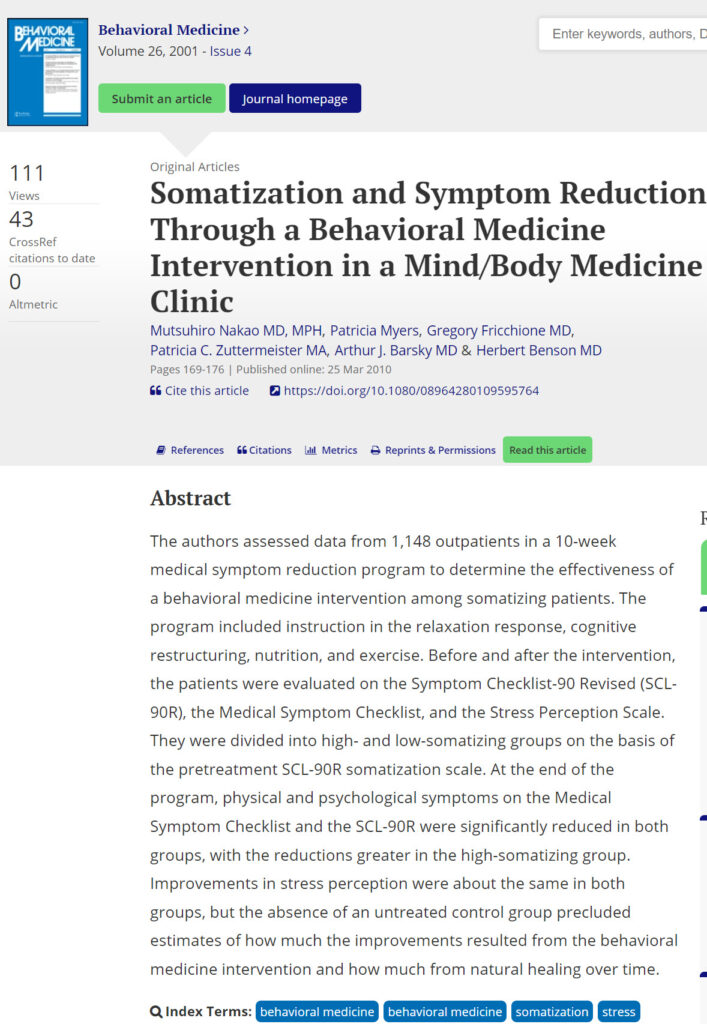The authors assessed data from 1,148 outpatients in a 10-week medical symptom reduction program to determine the effectiveness of a behavioral medicine intervention among somatizing patients. The program included instruction in the relaxation response, cognitive restructuring, nutrition, and exercise. Before and after the intervention, the patients were evaluated on the Symptom Checklist-90 Revised (SCL-90R), the Medical Symptom Checklist, and the Stress Perception Scale. They were divided into high- and low-somatizing groups on the basis of the pretreatment SCL-90R somatization scale. At the end of the program, physical and psychological symptoms on the Medical Symptom Checklist and the SCL-90R were significantly reduced in both groups, with the reductions greater in the high-somatizing group. Improvements in stress perception were about the same in both groups, but the absence of an untreated control group precluded estimates of how much the improvements resulted from the behavioral medicine intervention and how much from natural healing over time.
Somatization and symptom reduction through a behavioral medicine intervention in a mind/body medicine clinic
Publication
Behavioral Medicine
Volume 26, Issue 4
Abstract
Web and Email Links
Related Listings
Journal
International Journal of Cardiology
We report extremely prominent heart rate oscillations associated with slow breathing during specific traditional forms of Chinese Chi and Kundalini Yoga meditation techniques in healthy young adults. We applied both spectral analysis and a novel analytic technique based on the Hilbert transform to quantify these heart rate dynamics. The amplitude of these oscillations during meditation was significantly greater than in the pre-meditation control state and also in three non-meditation […]
Journal
Journal for the Scientific Study of Religion
Clinical observations suggesting a relationship between spiritual experiences, life purpose and satisfaction, and improvements in physical health led to the development of an Index of Core Spiritual Experience (INSPIRIT). Data from 83 medical outpatients showed the INSPIRIT to have a strong degree of internal reliability and concurrent validity. Multiple regression analyses showed the INSPIRIT to be associated with: (1) increased life purpose and satisfaction, a health-promoting attit […]
Journal
Behavioral Medicine
To clarify the mechanisms of gender-related mind/body relationships, the authors analyzed the characteristics of 1,132 outpatients (848 women and 284 men) attending a mind/body medicine clinic. At entry in the program, the patients completed the Medical Symptom Checklist, Symptom Checklist-90 revised (SCL-90R), and Stress Perception Scale. Women reported 9 out of 12 symptoms (fatigue, insomnia, headache, back pain, joint or limb pain, palpitations, constipation, nausea, and dizziness) […]

